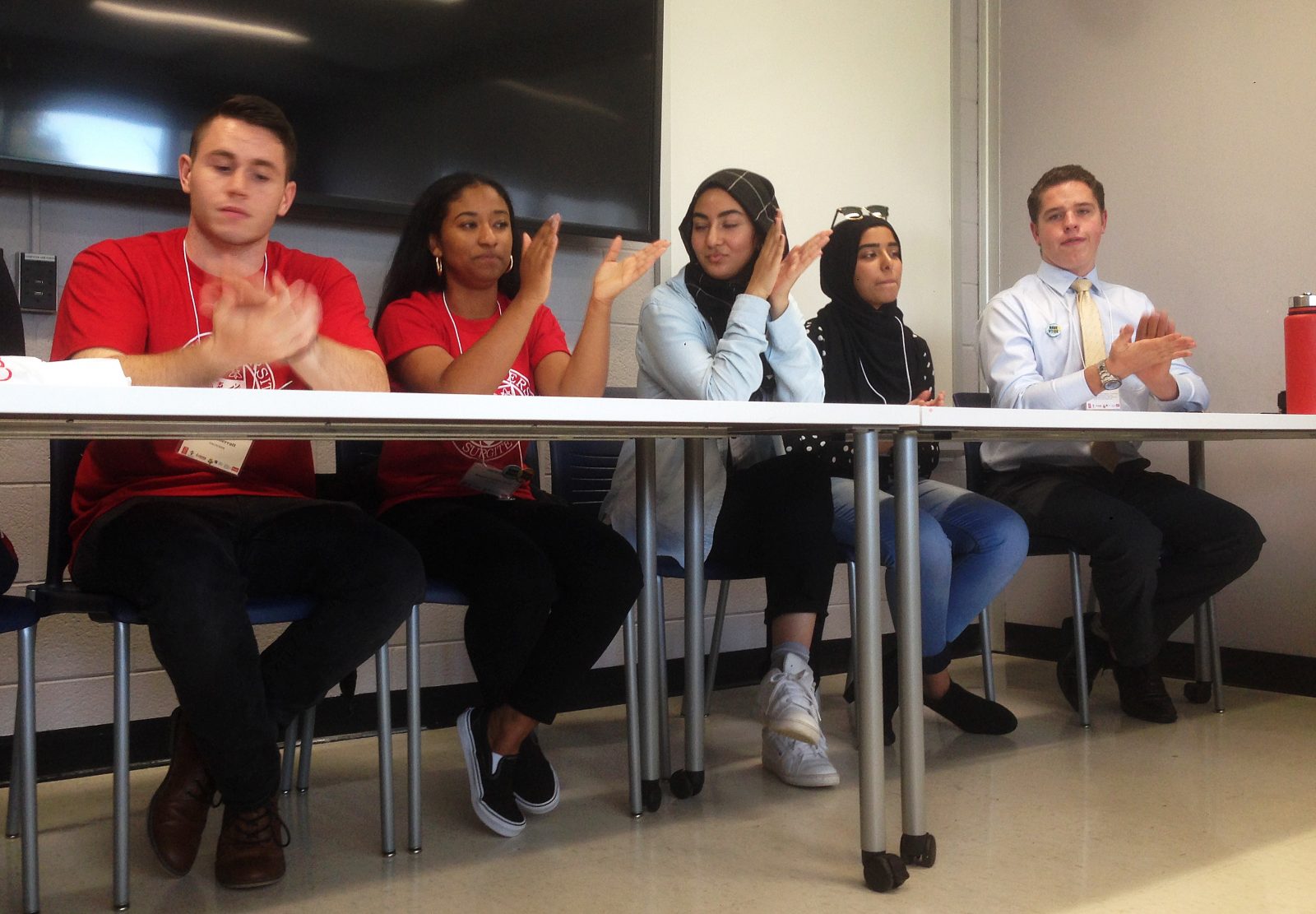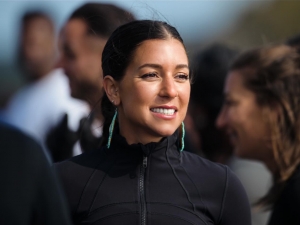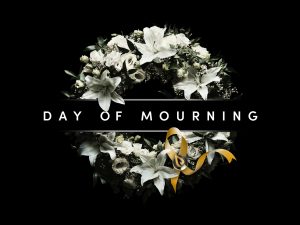 More than 200 educators, youth, parents and community members participated in the Changing Mindset in a Changing World youth summit held at Brock Oct. 10.
More than 200 educators, youth, parents and community members participated in the Changing Mindset in a Changing World youth summit held at Brock Oct. 10.Racialization, mental health issues, violence, poverty — today’s youth are being bombarded with a dizzying array of societal challenges that are playing out in classrooms across the province.
Educator Darlene Ciuffetelli Parker researches how unconscious biases and assumptions arising from these and other challenges create systemic barriers in secondary school teaching, learning and social environments.
To help the Department of Teacher Education professor conduct this research, a youth summit, Changing Mindset in a Changing World, was hosted at Brock Oct. 10.
Included were more than 200 educators, youth, parents and community members from the Niagara Catholic District School Board (NCDSB), Durham District School Board (DDSB) and Niagara Poverty Reduction Network (NPRN) — all partners in the research collaborative that Ciuffetelli Parker formed.
Presentations and discussions noted specific ways in which biases and assumptions affect students’ learning and experience in school systems and communities. This includes access to opportunities stemming from racialization, gender issues, socio-economic marginalization, culture and other factors.
Participants also brainstormed possible solutions to changing mindset, including:
- developing a school climate where positive relationship with educators, staff and adults in schools creates a safe culture for wellness and belonging
- having teachers integrate social justice issues into their lesson plans
- implementing supports for students in various situations. For example, in rural school settings versus urban neighbourhoods, modifying homework policies and supports for travel
- creating collaborations between educators, community partners and families to support the development of youths’ literacy and other skills needed in today’s world
“Relationships are what matter to youth,” Ciuffetelli Parker said. “All schools reported on the importance of building a community of belonging inside as well as outside schools. Caring teachers and adults make a tremendous difference, sometimes even for survival.”
Receiving input from the wide array of participants informs the research, she said.
“You can call it ‘research in action,’ a demonstration of a large partnership network that I call ‘the research collaborative.’”
Through the summit and other activities, this collaborative is catapulting the research to the next level, creating an Ontario-wide human rights framework.
“Our research collaborative strives to better understand the lived experiences of youth based on, but not limited to, family income, race, gender, identity, religion, disability, mental health and inclusive educational needs,” Ciuffetelli Parker told participants in her opening address.
“The collaborative network’s mission is to develop an interactive research-informed and practice-based Human Rights Youth Strategy that is guided by three principles: changing mindset, shifting practices for learning and leading, and fostering youth voice and parent engagement,” she said.
Ciuffetelli Parker’s research partnership with the two school boards began about three years ago, arising out of earlier research on poverty and education across Ontario.
She had written a number of reports and briefs, articles and a book exploring the impact of poverty on education and advising teachers and communities on ways to overcome negative stereotypes that prevent children from having equal access to educational opportunities.
But Ciuffetelli Parker realized that poverty challenges were part of the larger issue of ensuring equity and fairness for everyone in school systems.
“About three years ago, I thought, ‘Something’s telling me that the youth have a voice in this. Something’s telling me it’s not just about poverty here, it is really around a human rights framework. It really is around creating an Ontario youth strategy,’” she recalled.
Since then, Ciuffetelli Parker has worked alongside secondary students and teachers in classrooms and she is using school-based narrative research to illuminate storied experiences and successful strategies, while also identifying areas for improvements in school systems having to do with equity, socio-economic marginalization, well-being and academic success.
She has also conducted extensive focus groups with students, teachers, administrators, parents and community members in four secondary schools within the two school districts.
Following the summit, Ciuffetelli Parker hosted an advisory panel on Oct. 11. The research collaborative network of Brock University, NCDSB, DDSB and NPRN have been invited to participate within a larger Provincial Equity Knowledge Network led by the University of Ottawa and funded by the Ministry of Education’s Knowledge Network for Applied Education Research.








